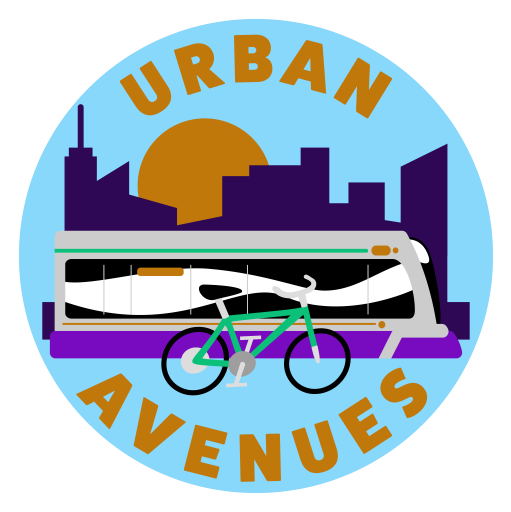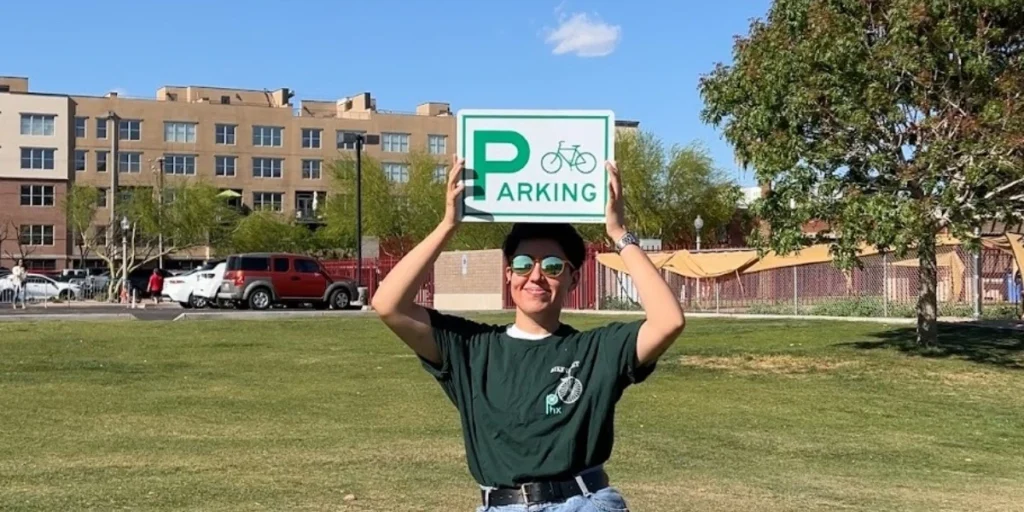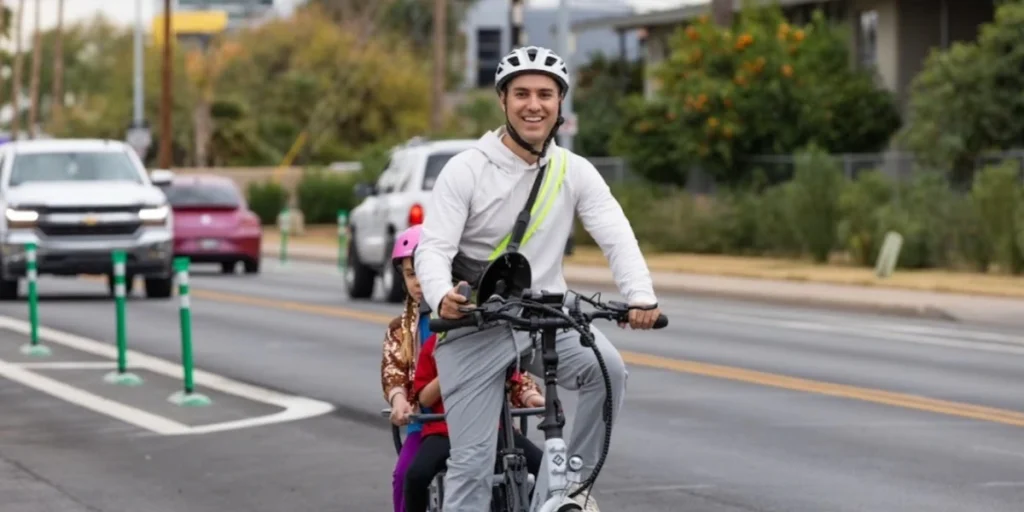Introduce Yourself!
I’m Shawn Thomas. I’m from Phoenix, Arizona. I’ve lived here my entire life. I grew up a little bit more kind of middle class area, a little more suburbia. I’ve also lived in the downtown area, you know, so I’ve kind of got like a sense of what life is like there. What life is like downtown with everything. I worked as a personal trainer for a little bit so I kind of got the chance to see how walkability and all that stuff kind of like relates to that.
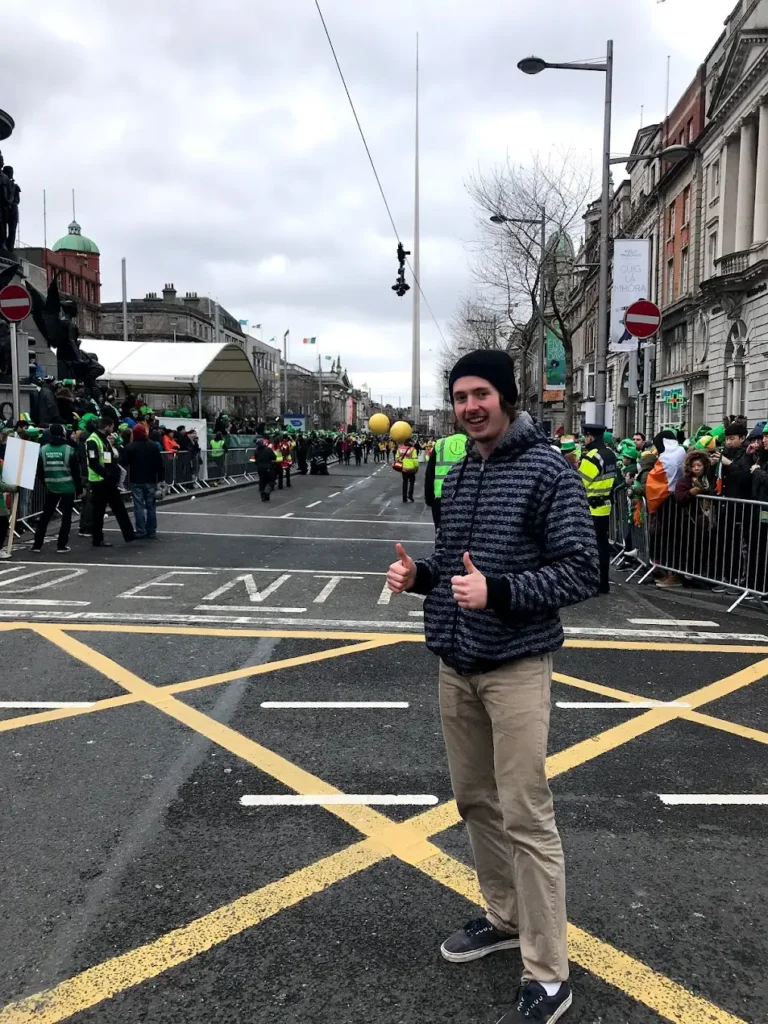
What was your ‘Urbanism by chance’ moment when you realized that we need to change the business-as-usual approach to our cities?
Yeah. So I remember so we had, no light or, we had no anything in the house and our breaker system went out so there was no AC, no nothing. And then I had Covid at the time, so I couldn’t go over to, like, my friend’s house or anything to stay. So I was forced to stay inside. And then I also couldn’t charge my car, since I had an electric car, so like one thing I had to do was go over to the Arrowhead Mall, which is about five miles from here and to there to try to charge my car.
And then it wasn’t working. And there are a lot of things that were going wrong. So I had to, like, kind of go from one station to another and I had to wait for it to charge. So I’ll kind of like walk around the area just to kind of pass time with everything. And then I know since I was like walking around, I was like this is really inconvenient to walk around because like, it’s like the parking spot is like super wide.
There’s not a ton of crosswalks. It’s not a lot of space or anything to really walk in. I had to get to another area. I had to like wait for cars to go and pass by, or else I had to go a extreme distance for a crosswalk which I didn’t want to do.
So it’s just very inconvenient to walk around. And there wasn’t a lot of walkability. I didn’t feel safe walking around and that lasted for a while. So I think that was definitely a big moment where I was like, yeah, like, this is, we need something to change. Because that was kind of like the moment where I felt like, yeah, we’re really reliant on cars because the way all this is designed, it’s designed for that. You know, it’s not designed for somebody who wants to, you know, has to walk around and do something like that. So that was a that was a big moment.
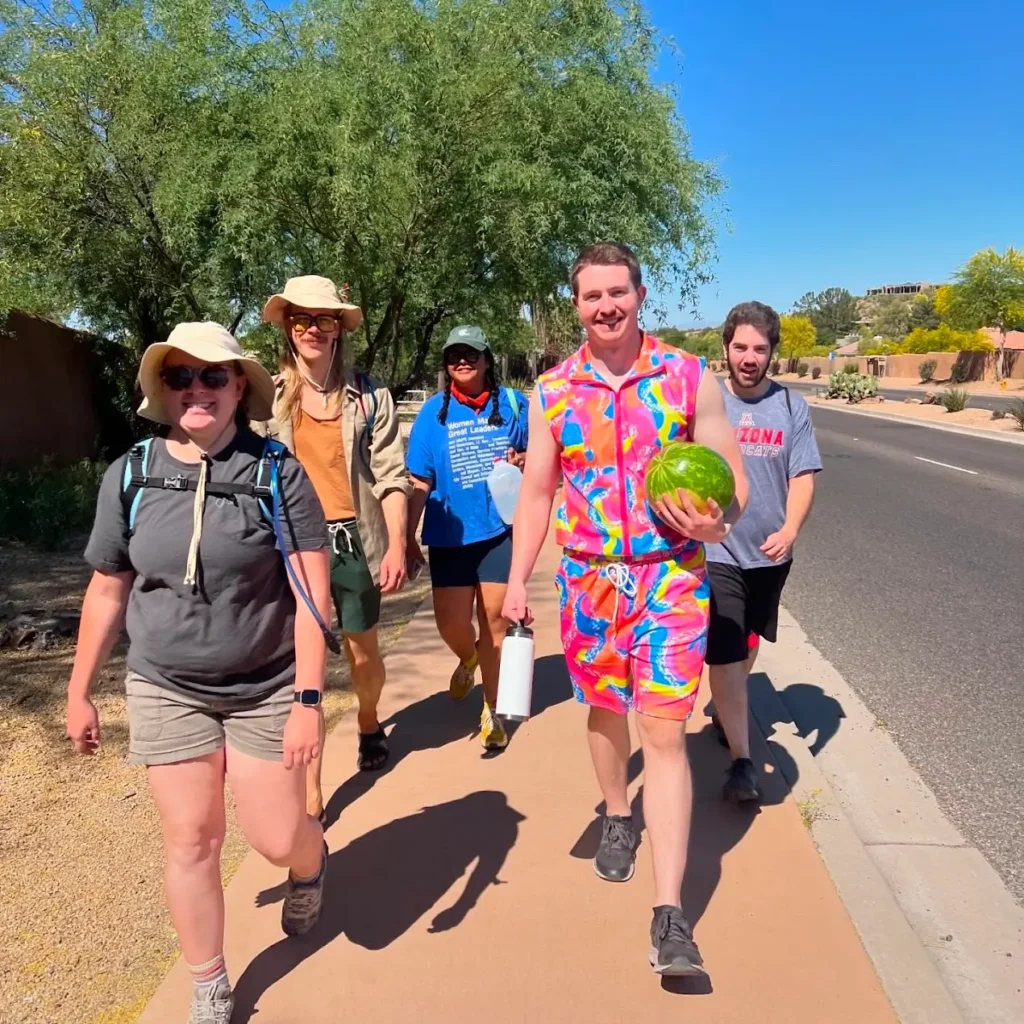
Rapid-Fire Reps!
What’s your favorite walkable city?
Downtown Phoenix
Bike, walk, or public transit?
Walking
Morning or evening walks?
Evening Walks
One urbanist change you’d love to see in your city?
More walkability and light rail expansion
The steps towards Urbanism
How did you first discover urbanism, and what attracted you to the idea, even though you don’t typically consider yourself an urbanist?
First, discovering urbanism that was honestly through you, so like, I feel like if you now if I didn’t have you, I probably wouldn’t know a lot of the stuff, to be completely honest with you. And I guess like what the some of the stuff that you would talk about, I’d just kind of be like, oh, okay. You know, but then like, I think that later on I would kind of like live it more.
Can you describe a specific experience or moment that sparked your interest in urbanism?
I don’t think it was as much the stuff that you said, until I experienced it a little bit more. Like I remember I’ve traveled to Australia. I’ve traveled to Spain, and I’ve traveled to a lot of these countries where things are set up a lot differently, for example, like we went to Australia and then you know, we had these, transit, we had these like cards, the Opal cards.
So essentially what it was, it was like $20. And then that would give you access to any, any type of transit, you know, there. So like you could take the ferry with it, you could take the train, you know, you could take the bus. And then that was like the normal form of transportation there. People were everywhere everybody was on the ferry. I think, I remember in Ireland you met some of your friends there, like through transit, right?
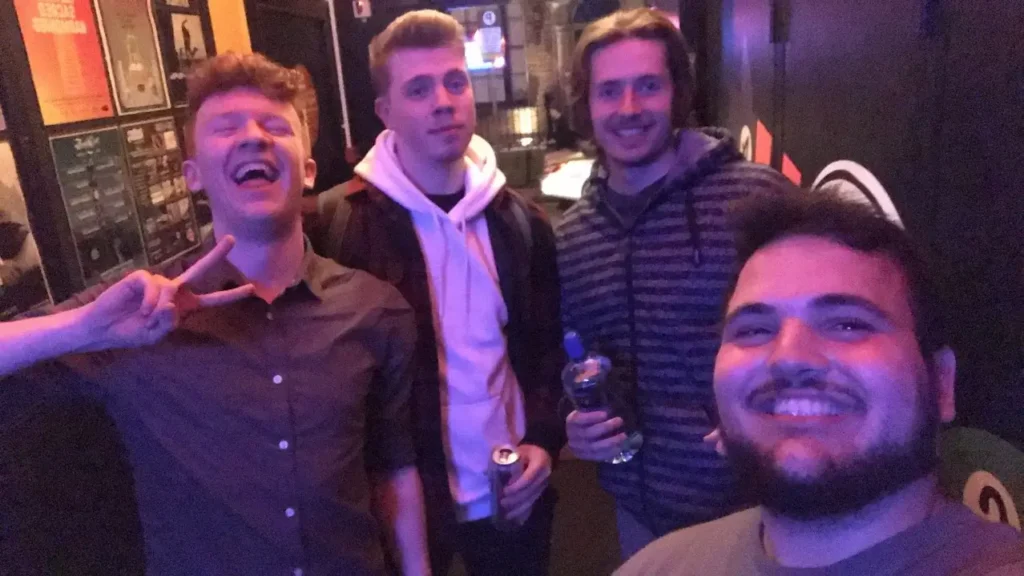
Have you ever had a moment where you realized that our cities might not be built in a way that meets the needs of your community?
Honestly, I think that moment where I was walking around because my car was in charge and everything, the store that I was aforementioned, that was actually kind of a big one, you know, and then I think it wasn’t like a particular moment, but like, I notice, like when we go like downtown, for example, like, you know, everybody here like every time I come down here, you’re like talking to somebody that I’ve never really met.
You know, you have like a wide community. You have a lot of different people that you know, you know. So it’s like where I am, I don’t know if it’s just like by design or if it’s just, you know, whatever. But I just notice we live in a house and we barely know the neighbors. And I think there’s a lot of people that are kind of experienced the same thing where it’s not really like a shared community.
What changes would you like to see to better meet those needs?
Yeah. I mean, it’s kind of I can’t really pinpoint like a specific solution because the things are the infrastructure that is already designed in like a specific way that I think it’ll just be really tough to augment that in a way to where that particular area is more walkable, and then you’re able to kind of build that community.
Do you feel there are certain misconceptions about urbanism that you’ve encountered?
I think that people are generally very tied with suburbia because I think that’s what people grew up with. So I think that’s kind of like all that people know in a way. And then when they’re, like exposed to something different, I think there’s kind of like a push back on, you know, like, I think that a lot of people are very attached to their cars.
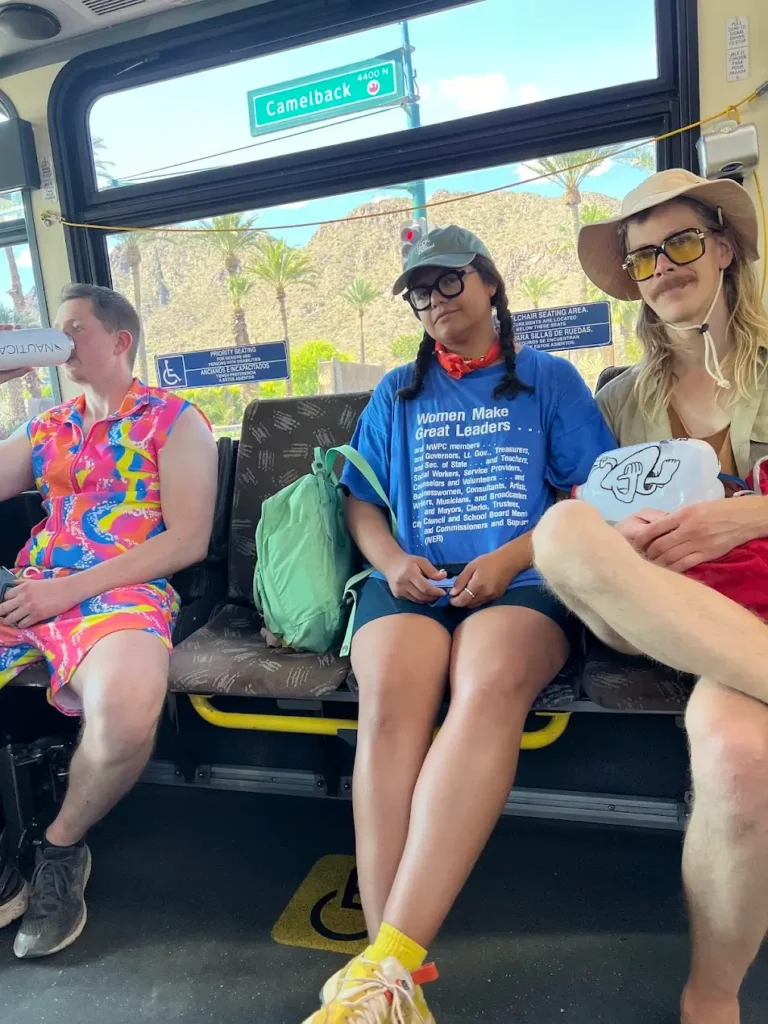
Personal Training Meets Walkability
When coaching clients during personal training, how does walkability factor into your programming?
So I worked in, area that’s it’s a pretty rural, conservative type area. So it’s basically the opposite of, like, everything that you, you know, preach and talk about as far as, like, walkability. And it’s the epitome of suburbia. I have to encourage some additional walking in my programming.
I think it’s like the lifestyle of the area as well because like a lot of people have work desk jobs and a lot of people that work remote or like work in a place that’s just very dormant. They don’t really move a lot. So having my clients move simply by walking was a huge factor for meeting their basic steps. I try to have them walk a bit in between sets.
Can you share an example of how you’ve integrated walkability into a client’s routine?
It can be difficult with a busy work schedule but I recommend clients to walk after a meal at least 10 mins is a good start.
Do you believe in the goal of getting 10,000 steps a day?
Yeah I believe in it, it is a semi-arbitrary number but I do believe in somewhat of a goal. Even if it is 8,000 or 6,000 steps in a day. As long as the goal is more than what you are doing currently.
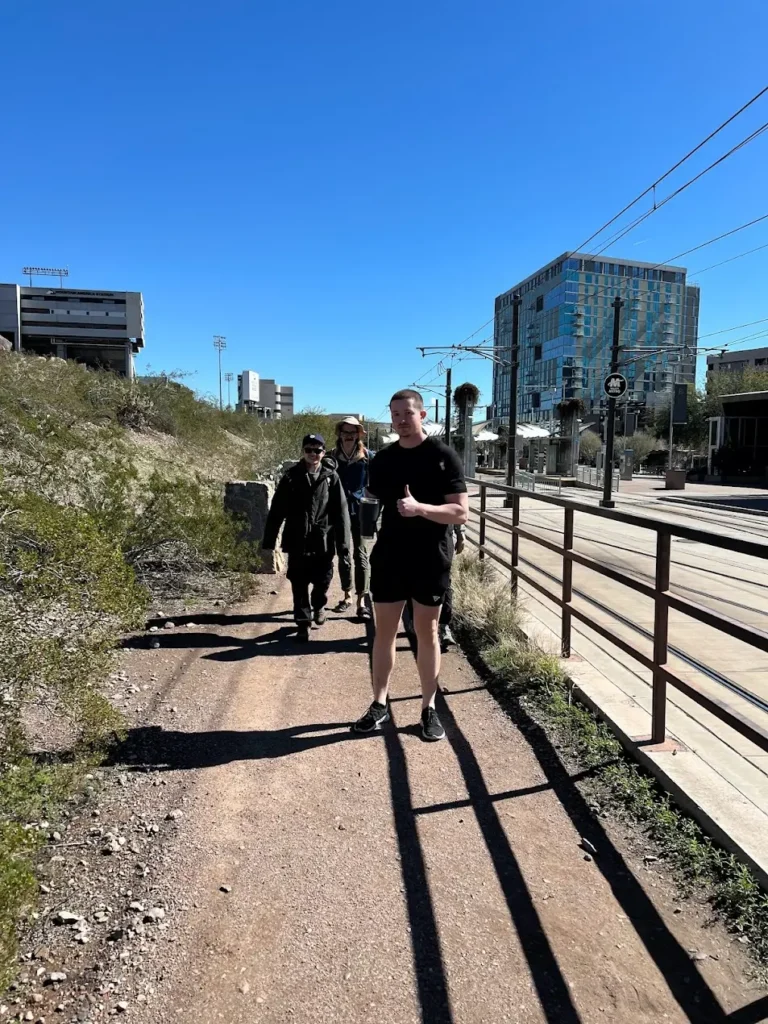
Bills keep coming and they don’t stop coming
Do you feel that forced car ownership has inhibited your potential opportunities by draining your income? Why or why not?
So right now, I mean, as I’ve said, I drive an electric. And the benefit of that is you don’t have a lot of expenses with that. You know, I think the only real expenses are your electricity bills a little bit higher. And you just have to change your tires and like the windshield wipers, but that’s really it. But when I had the Malibu, when I lived in Malibu, when I had a gas car, it definitely impeded.
And it was definitely kind of a drain because I worked as a still do. I worked as a server at the time, and I worked like about seven days a week at the time, like I actually was a personal trainer Monday through Friday. And then I worked as a server Friday through Sunday to kind of like make ends meet.
I did this for probably like a year on end, but during that time I made pretty good money. But it’s it’s really, yeah, it’s really discouraging when like, you make a lot of money and you, you know, you’re, you’re happy about like, a big paycheck or whatever it is, and then something happens with your car and then you’re like, oh, man, that’s like an $1,800 payment.
And you have to use all that money working seven days a week to put that money into the car. That’s not even including gas, insurance, and other things that are little problems that are going on with the car. It just all like really adds up. And it could even be just like purchases, little purchases that yeah, they really add a bit.
It can really be a burden, and it’s really discouraging when you feel like you’re caught up with like all your finances and everything. I think a lot of people can, you know, like relate to this, especially like people my age, like 20 & 30s, and, you know, you feel like you’re doing well financially and then you’re like, you got a big car payment or something. It’s I think it’s a big drain on a lot of people.
How do you think your financial health would change if you lived in a city with better public transportation and walkability?
Yeah, I think it would be much better. I mean, like if you’re in a situation where you don’t you have to have a car or having expenses like that. I think that’d be a huge benefit to your financial health. Let’s just say 50k a year, you could be doing a lot better off than someone making 80k, for example, and it has to do with all those car expenses. You know, that could be honestly like evened out or they could be doing a lot better because yeah, I mean, you know, car expenses, they really do add up.
What would you do with the extra income if you didn’t have to allocate so much to car-related expenses?
Personally, I think I would just have a lot more to, you know, just kind of save to kind of invest a little bit. I think I’d have a lot more room for that. I probably spend a little more on hobbies and stuff. I like playing the guitar and probably would also buy a new piano.
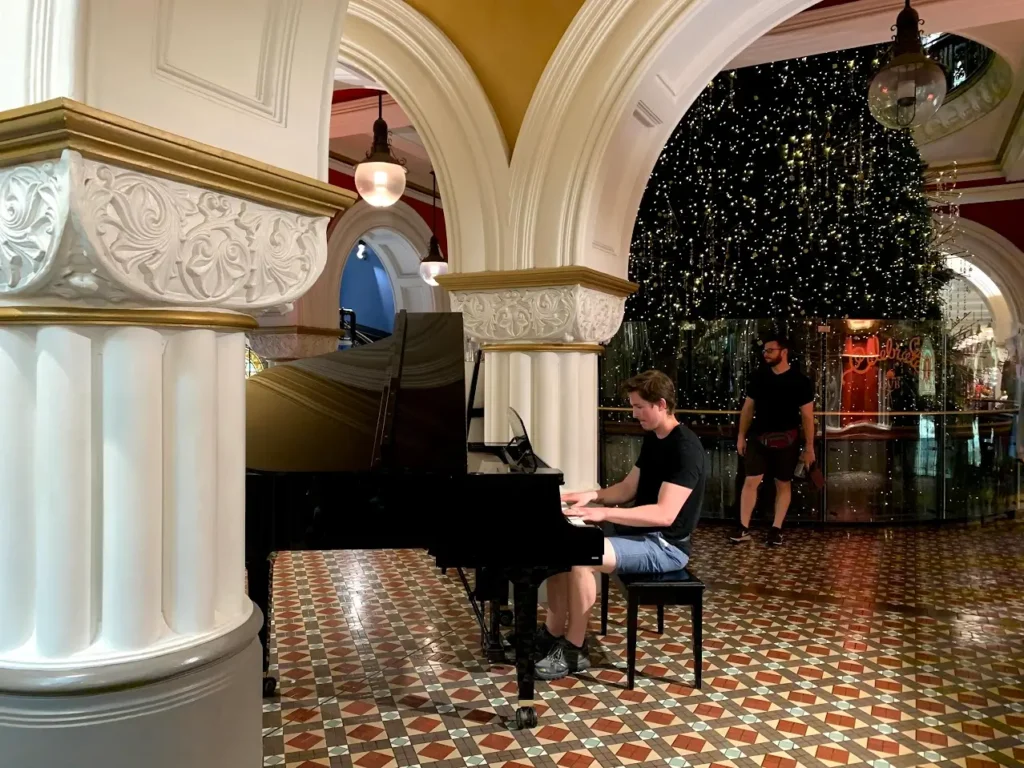
Do you believe that the financial savings from reduced car ownership could significantly impact the economic mobility of people?
Yeah, I do, I think I mean, like, most people live like a paycheck to paycheck thing. I think it is because they don’t really see all these payments that are really piling up and car payments are a big struggle keeping people from moving up. It can be hard to save and invest if you are putting all your money towards a car.
Do you think there is a cultural or societal pressure to own a car that contributes to financial strain?
Oh, 100%. I think it’s, like I remember like you would tell people that you don’t have a car and people would think that’s weird, it’s like, why the hell? Why the heck would you not own a car? It was just kind of like, not fathomable for a lot of people.
And I think that once you’re when you’re in high school, like the first thing I think a lot of people look forward to is like, oh, what am I going to get a car? Am I going to get my driver’s license? What kind of car am I going to get?
How do you think we can shift this mindset towards valuing walkability and public transportation more?
Probably like people like you and I think the people that are really centered around urbanism is going to be the way to get information out about that type of stuff to make people more aware of that. You know, because I think it’s really difficult from just a general infrastructure standpoint to be able to implement stuff like that. But I think if people like you and like minded people building that community are kind of able to put this type of information out there, maybe you could help change in people’s minds about this type of stuff.
Lifting off
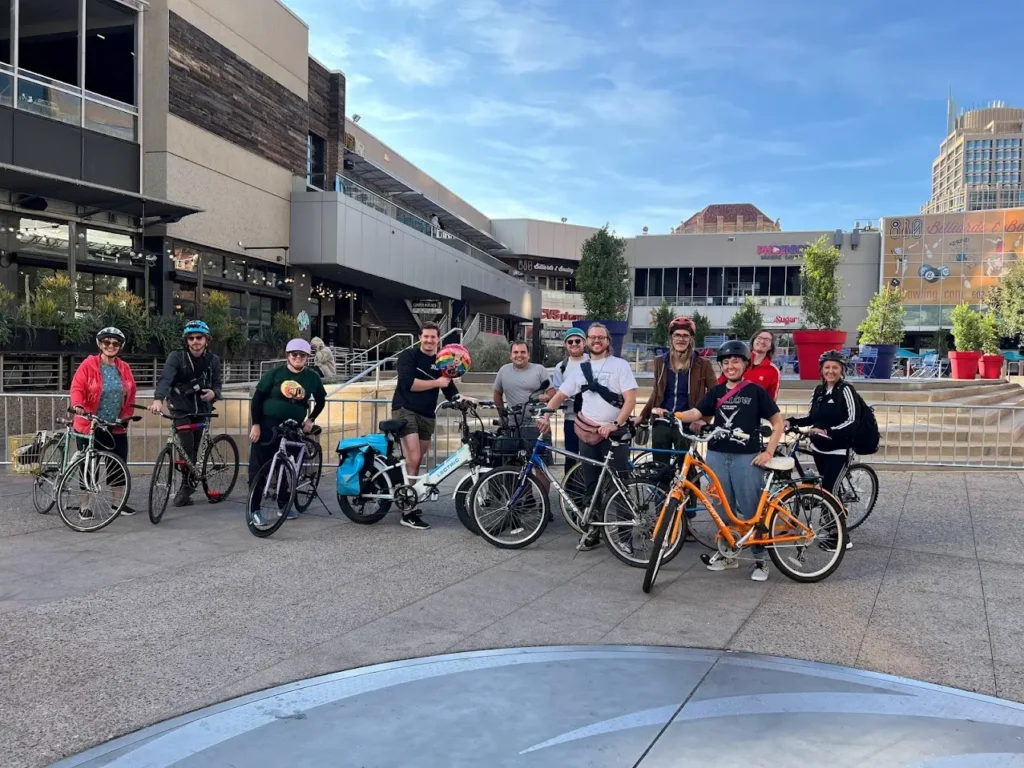
Do the elements of urbanism play a role in how you plan your future, such as where you’d like to work and live to build your local community?
Yeah. I think that, like, you’re talking about personal training and the downtown area. And I think it would be cool to be able to have the ability to be able to dictate, where I work and, you know, being able to kind of like, build that local community.
And I think that would be cool. I think it’d be idyllic. But I think a lot of times, like with the current, like, you know, see the job market and everything, like sometimes we just kind of like look for who’s hiring and just get a job and figure out the details of that later, you know? But yeah, I think, I think that’ll be really cool to do.
Is there anything I may have missed that you would like to bring up?
Nope!
If there’s anything you’re currently working on, feel free to share it with us here! How can our listeners support your work or get involved?
I have a personal training account. It’s I am currently not using it as much. I’m kind of switching gears a little bit. I’m getting more of a physical therapy. So I’m in school at the moment, so if you want to help me out, do do my physics homework. But that’s kind of currently what I’m working on right now.
